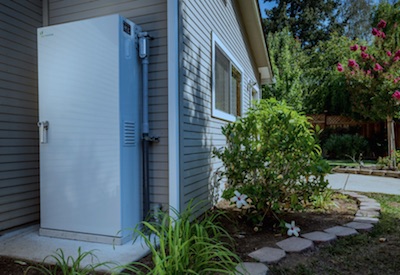Alectra Study Identifies Residential Solar Storage Potential

May 14, 2017
Alectra Inc., with the support of the Independent Electricity System Operator (IESO), has completed a feasibility study for mass adoption of the utility’s residential solar storage pilot, Power.House, in Ontario’s Southern York Region.
The feasibility study analyzed costs, benefits, technical capabilities, and key considerations associated with aggregating a large-scale fleet of solar storage assets, known as a virtual power plant, to deliver both customer and grid value.
Alectra distributes electricity to nearly one million customers in Ontario’s Greater Golden Horseshoe Area. Expanding the utility’s existing offering is feasible, the study found, and could result in a positive overall benefit to customers over the study period, with the opportunity to install up to 30,000 new units in Southern York Region by 2031. Implementation of the proposed roll-out could, under the right conditions, result in the potential to defer energy infrastructure investments by at least two years in the late 2020s, while offering customers a significant reduction on their bills by generating their own energy, sending the surplus back to the grid for additional credit and providing a number of grid reliability services. (Shown in photo: a Power.House system in North Bay.)
Funded by the IESO’s Conservation Fund, Power.House uses an aggregate fleet of residential solar and battery storage systems located at customers’ homes. The systems are autonomously controlled through intelligent software to simulate a single, larger power generating facility. The technology, which features a combination of rooftop solar PV panels and a lithium-ion battery installed behind the meter at customers’ homes, helps to protect against power outages, off-sets peak hour electricity rates to provide significant reductions on bills and reduces impact during peak system demand, while delivering clean power directly to the customer.
“The results make a strong case for further study of the technical and commercial potential that residential solar storage can achieve,” says IESO President and CEO Bruce Campbell. “It will also help inform future efforts that may see these technologies emerge as a sustainable option to support reliable grid operations.”











![Guide to the Canadian Electrical Code, Part 1[i], 26th Edition– A Road Map: Section 56](https://electricalindustry.ca/wp-content/uploads/2022/11/Guide-CE-Code-2.png)



